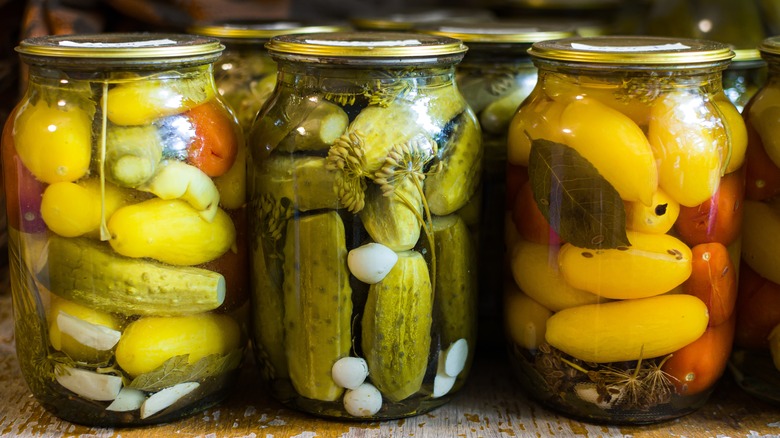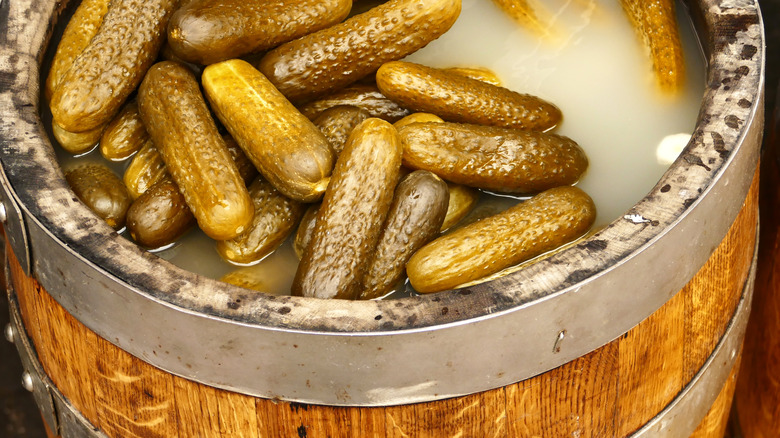Do You Actually Need To Store Pickles In The Fridge?
It can be difficult to wrap our heads around the fact that preserved things still go bad. After all, shouldn't jerky, smoked fish, or pickled veggies just stay good till we use them up? Shelf-stable pickles sit on store shelves for days or weeks at room temperature and under bright lights, after being shipped from who knows where. Shouldn't they still be shelf-stable once the jar is opened? Do they really need to be kept in the refrigerator, like the back of the jar instructs?
The answer is yes. Put them in the refrigerator after opening. Part of the reason is pickling isn't just one process; instead, it includes cooking, fermenting, brining, and marinating, or combinations of each. Each brings different pros and cons to the table, and different risks of bacterial contamination or spoilage. For the most part, what we buy in stores aren't your great-grandparents' pickles.
According to the U.S. Department of Agriculture (USDA), any unopened commercial shelf-stable pickled product (or properly home-canned version) has a shelf life of up to about 18 months. Once opened, if they're in a can (think pickled beets), they last in the fridge for another five to seven days. If they're in a jar, they're good for one to three months. Even if they're not spoiled, pickles begin to lose their flavor and quality three months after opening. Essentially, they can go stale even if they don't go bad.
Why we refrigerate opened pickle jars
The USDA divides pickles into cured type (fermented in a salt brine, might be stored in vinegar and spices), fresh-pack type (unfermented cucumbers in a vinegar solution, processed using heat for safe storage), and refrigerated type (fresh cucumbers packed in vinegar and spices, and kept chilled in the store). There are differences between fermenting and marinating or pickling. The fermentation process can take weeks. Fresh-pack pickles are heated and stored in sanitized sealed jars or cans. Refrigerator pickles are easily made at home and don't involve sanitized jars or heat. They're most at risk of going bad quickly and must be refrigerated from the get-go (same with any store-bought pickles, kimchi, or sauerkraut found in the refrigerator section, usually in soft packs). Those jars of shelf-stable pickles next to the mustard? That's the fresh-pack type.
Fully cured, fermented, and brined pickles are more resistant to fungal or bacterial contamination, but they're rare in store-bought form. For generations, they were sold from unrefrigerated barrels, still found in some specialty shops. But here's the rub: Incidents that occurred in the late 1990s alerted the USDA to the fact that high-acid, unpasteurized foods like orange juice and apple cider were prone to bacterial contamination. This led to concerns about pickles and other acidified foods. According to the USDA, there haven't been any food-borne illnesses from commercial pickles in 50 years. Nevertheless, modern processing rules and refrigeration recommendations make certain we are safe, not sorry.

